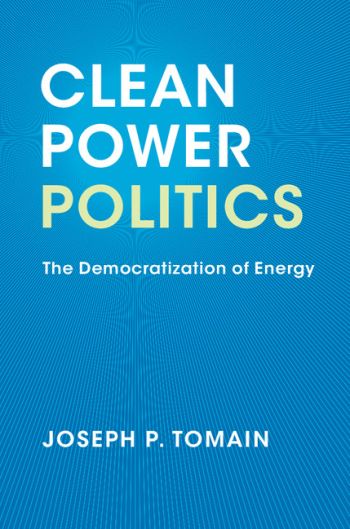
The United States has been experiencing an energy transition for over four decades, and now - thanks to the Clean Power Plan of the Obama Administration and the Paris climate agreement - a clean energy future is moving closer to reality.
In Clean Power Politics, Joseph Tomain describes how clean energy policies have been developed and, more importantly, what's necessary for a successful transition to a clean energy future, including technological innovation, new business models, and regulatory reforms. The energy system of the future will minimize the environmental costs of traditional energy production and consumption, and emphasize expanded use of natural resources and energy efficiency. Because many new energy technologies can be produced and consumed at smaller scales, they will shift decision-making power away from traditional utilities and empower consumers to make energy choices about consumption and price. In this way, a clean energy future embodies a democratization of energy.